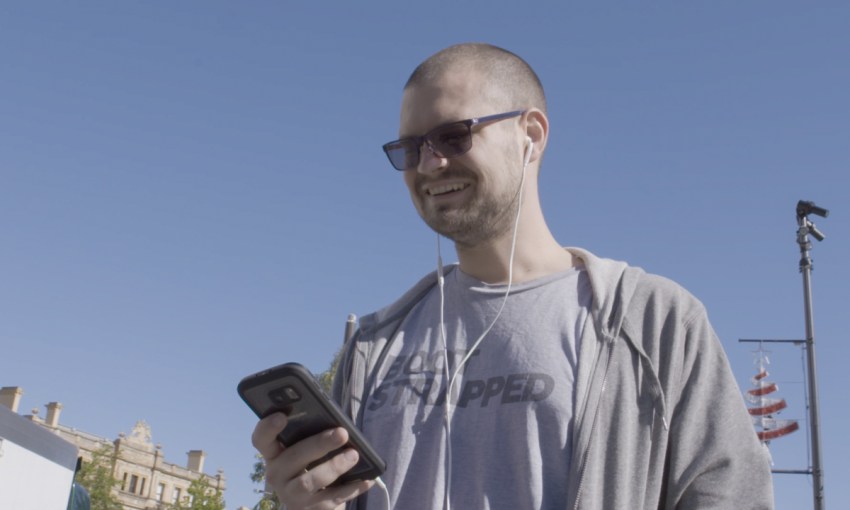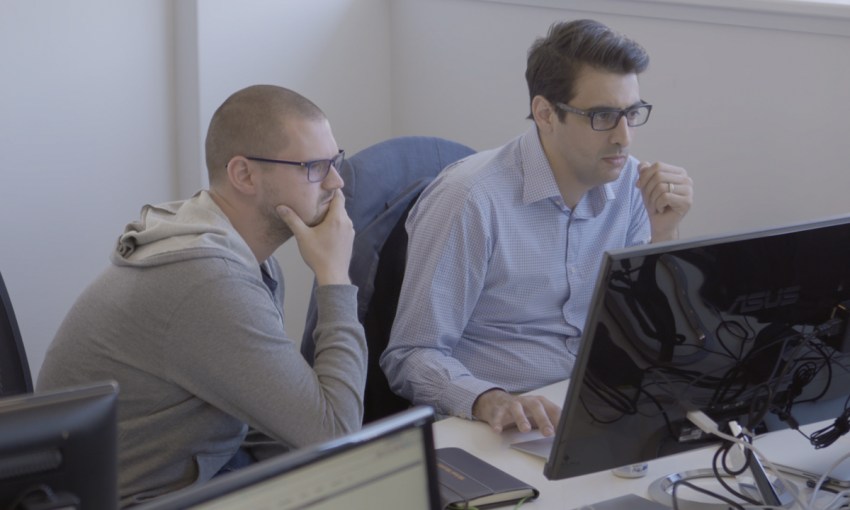The accounting profession is changing, and Chris Hooper's Pirie Street startup, Accodex, is helping it evolve. But Adelaide is presenting its own unique challenges to this business' growth potential.
Accounting software startup is literally counting Adelaide’s pros and cons
From the top storey of the Epworth Building, Chris Hooper runs Accodex – equal parts accounting practice and tech startup, dealing with the changing nature of the accounting profession.
In particular, Chris is addressing a trend he’s seen in young accountants leaving larger firms in favour of finding their own way.
“I’d spent four years building an accounting practice, and spent a lot of money in the process doing that trying to get it right, and I was talking with other 20-something-year-old accountants that had gone out on their own, and it turned out they were all having similar troubles, in terms of the infrastructure and the technology piece,” he says.
“These guys were good accountants by all measure, but they weren’t necessarily well-versed in marketing, social media, technology, public relations, HR, all of that other stuff that comes with running a business, generally, whereas I took it upon myself to get good at those things, probably at the expense of my accounting skills.”
The software Chris and his team built deals with “lead and opportunity pipeline management, billing maintenance, job workflow and project management, customer support, enterprise social,” and is matched with Accodex’s employees, who provide a range of skills, from marketing, HR, technology, and all the non-accounting skills a practice will need, but are prohibitively expensive to outsource if you’re a small business.
By creating a network of accounting freelancers, Accodex pools its resources to be many things to its user base of many people.
“I just saw on our chat feed that one of our partners in California is running a webinar, he’s coordinating with our marketing guy here on the ground in Adelaide to actually promote that, to manage that campaign,” Chris says.
Having users across Australia, the United States and England sounds exciting but the reality of operating a global business out of Adelaide is a sobering experience.
“The most inconvenient time zone on the planet,” Chris laughs.
“When you’re talking in terms of trying to arrange meetings between Adelaide and New York, there’s like two hours where you’ll both be awake, so I find myself doing some pretty weird hours.”
Now in the process of raising capital, the geographical barriers are not only in time zones, but also in Adelaide’s lack of investment potential.
“I am convinced that staying in Adelaide has cost me, or the company, economically,” Chris says.
“Mainly because the connections that you actually need, especially when you’re running a fast-growing tech company, they’re not here, they’re interstate, they’re overseas,” Chris says.
“That hasn’t been more true now, [than while] trying to raise capital here in South Australia.”
Chris is determined to keep Accodex in Adelaide, but if he can’t find the investors locally, he’ll need to look overseas, and that generally comes with a clause.
“Ultimately, if we can’t close this series A round of financing here in Australia, I’m going to have to push into California or New York, and with that comes a very high probability of the expectation of ‘Move your company over to the United States,’” he says.
“If it comes to that, absolutely, I’ll pack up my things and get on a plane to New York and grow the company form there, because at the end of the day, I’ve got to look after the company and everyone in it first.”
The benefits of Adelaide, for Chris, are all in the lifestyle.
“I’m a 20 minute walk down the road to the office, you know?” Chris says.
“My wife is seven months pregnant and we’re going to go to one of the best hospitals in the world, and she’s going to get world class care. When that kid gets older, we’re going to be putting him in a world class public school that’s going to cost us next to nothing, so for all of its shortfalls economically, socially, Adelaide is the only place where I would want to live and raise a family.
“That’s why I’m hell-bent on keeping the company here in Adelaide, because fuck it, we can make it work.”
And through keeping his operations here, Chris hopes to contribute to the startup culture, which he says is only now in its infancy.
“What Adelaide needs is really to wait,” he says.
“What’s missing is the exited eight-figure founders, the ones that have sold their companies for tens of millions or hundreds of millions of dollars, that have got a big bucket of cash themselves, that they can splash around the space, to invest in other companies, and reboot.
“I can count the number of series A-backed companies that have come out of Adelaide on one hand, and it’s even fewer when you factor in the fact that half of them have moved interstate or overseas to continue growth.
“What we need is enough of those companies to have been funded, to make it in terms of some sort of exit or liquidity event, and then to stay in Adelaide and be like ‘Cool, what next?’”
Chris hails government initiatives like the SA Venture Capital Fund, as well as the presence of Techstars accelerator program, as being a great start, but whether it helps to keep homegrown entrepreneurs in Adelaide remains to be seen.
“There’s enough on the horizon for me to be optimistic about it, but I suppose equally just as much on the horizon that would make me a bit pessimistic about it,” he says.
“I just want to see a few more founders getting over that million-dollar hurdle, raising some money, having a crack at it, and staying in Adelaide and… giving back to the community.”






